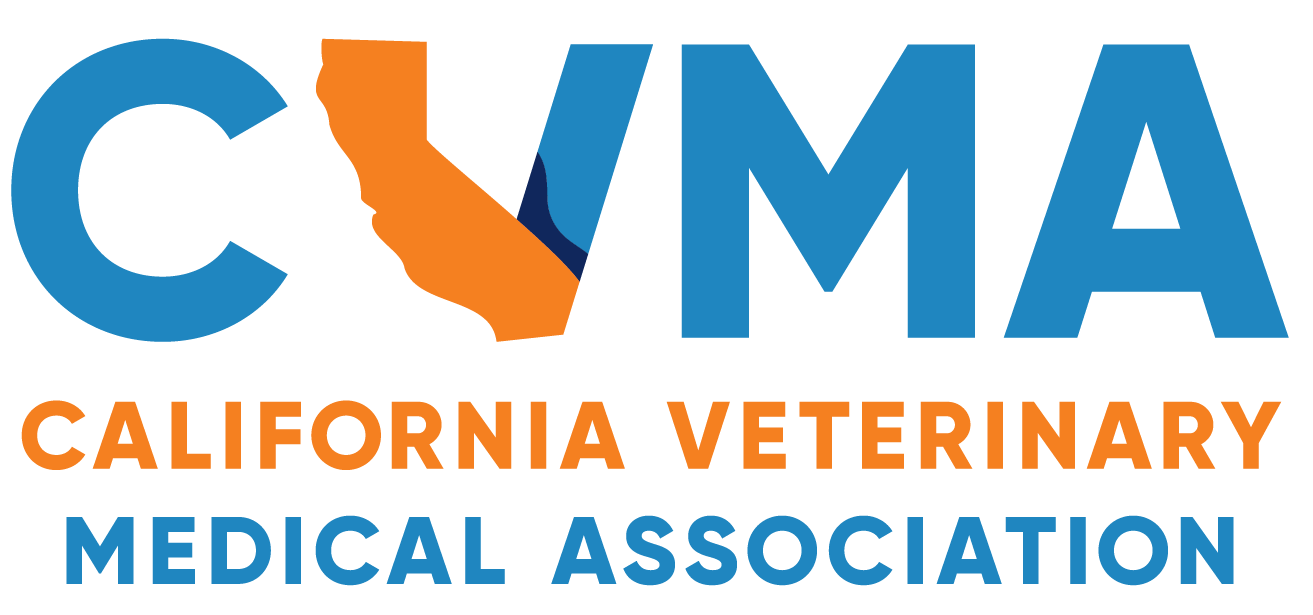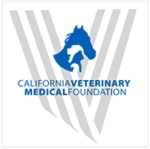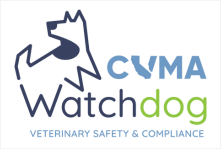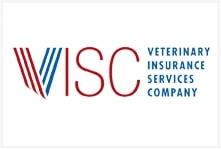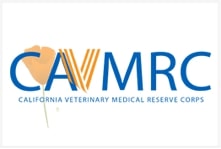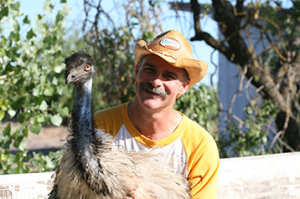This article was originally printed in the March/April 2025 issue of the California Veterinarian magazine.
Going into veterinary school, I was excited to work with animals and their stewards—as are most of us who enter the veterinary profession. The thought of being a modern-day James Herriot who worked with “all creatures, great and small” was a driving force for my educational path and early career.
My short, two-week rotation with the late Dr. Murray Fowler, head of the zoological medicine service at UC Davis opened my eyes to many zoological species. Everything was exciting and anything seemed possible!
After I graduated from UC Davis School of Veterinary Medicine in 1983 with a mixed animal track, I was off into the world of private practice, moving to the California Delta, where I still reside today. I started in a new small animal practice, but I was also free to get out and see larger animals.
Over the next two years, it became increasingly apparent to me that being a “jack of all trades, master of none” did not satisfy a sizeable part of my professional drive, and thus some soul-searching began. I asked myself questions like: “Where is your passion, professionally? What, in the wide, wild world in front of you, really excites you?”
With more practice experience and by attending CE lectures, I was surprised to discover that the answer was birds! At the time, there was no avian species specialty, no avian-exclusive practices, and no template on which to model this budding career focus.
Friends and colleagues almost universally told me that a concentration on avian medicine could not work; there was neither enough known about the field nor the patient load necessary to earn a living.
However, my wife Denise—a fellow classmate and veterinarian who also found a different passion outside of practice through teaching human anatomy and physiology to nursing students—understood and supported me every step of the way.
I felt at home attending the Association of Avian Veterinarians’ (AAV) annual meetings, and I quickly came to personally know colleagues from all over the United States and abroad who shared the same passion for birds, avian medicine, and surgery. Surprisingly, after a mere five years, I found that my caseload was busy enough with avian species that I needed to limit my personal cases to avian species alone. None of this was planned; it just happened!
I continued to manage the small animal practice until it was ultimately sold in 2004, and we moved the Medical Center for Birds into its own building. That move was eye-opening. It became readily apparent that this deep dive into a focused and dedicated avian practice offered unique opportunities to learn more, do more, and grow more.
In 2003, the American Board of Veterinary Practitioners (ABVP) formed the first-ever avian practice specialty, and I was fortunate enough to study and pass that examination. When the European College of Avian Medicine and Surgery (ECAMS), now the European College of Zoological Medicine (Avian Specialty), was formed, I was heartened to qualify for and be approved for membership there as well.
Achieving specialty recognition, however, proved not to be an end point. It has become increasingly evident that through sharing knowledge, presenting at those annual AAV meetings, and publishing material, I continue to learn and my network of professional colleagues and friends on a global nature continues to grow. What a fabulous world!
It became readily apparent that this deep dive into a focused and dedicated avian practice offered unique opportunities to learn more, do more, and grow more.”
The Medical Center for Birds is no longer a small practice, with six full-time veterinarians, an established ABVP residency program that has now graduated nine residents and numerous interns, and an approved European College of Zoological Medicine Avian specialty residency program. Our practice has regularly hosted visiting residents from other programs and students from numerous veterinary schools abroad.
Teaching has become a part of our structural core, in addition to our goals of continual provision of high-quality service for our patients and their stewards. Although so many of our visitors, interns, and residents came to learn from us, so many of them have taught us at the same time.
Who would have thought that following one’s passion could result in being invited to teach and lecture all over the world, publish and contribute to the specialty and our profession, do field work on conservation projects in international settings, and take on leadership roles within the AAV, the North American Veterinary Conference, and other groups?
Several awards and recognitions came along with these experiences—each one coming as a humbling surprise and providing even more of a push to continue to learn more, do more, and become better. How could these things really happen in private practice, in a specialty that did not even exist when I graduated?
Additionally, I’ve been honored to contribute to the field through writing and editing. The first large text that I co-authored was The Large Macaws, published in 1995. Since then, I have co-authored the first and second editions of Birds for Dummies. I was invited to serve as primary editor for Current Therapy in Avian Medicine and Surgery, which was published in 2015, and volume two was published in February 2025.
This has been an incredible ride—one that was driven by using that golden ticket of a veterinary degree, by earning an excellent education from UC Davis, by finding the joy and passion that really excited me, and by building my dream with the support of friends and family.
The development of my career along the way was always supported by family. Without those people who are so important in our lives and to share our lives with, the developing career is far from the whole picture. Probably those choices we make are what some refer to as “work–life balance.”
Maybe there never really is a balance, but rather a series of choices and opportunities that we hope to shape to be complementary in our lives that are never dismissive of the other side of the fraction.
In summary, what do I have to share with my colleagues in this story? Learn good medicine and surgery during school and afterwards. Never stop learning. Find, identify, and follow your professional passions, whatever they may be. Be kind and choose your words with care, as tomorrow you may have to eat them.
Wear your compassion on your sleeve, and always be willing to show it and share it. Pay close heed to your family and those you love—it is their support that will help keep you grounded. Don’t take “it’s impossible” or “it can’t be done” as the end point of advice but appreciate that it may very well mean that more time will be required and that the journey may take longer than more established tracks.
Always remember that your veterinary degree, truly, is your golden ticket that can help take you wherever you desire. This does not have to be a journey into a feathered world of professional activities but can go wherever your heart and your passion may guide you as a veterinarian.
This has been an incredible ride—one that was driven by using that golden ticket of a veterinary degree, by earning an excellent education from UC Davis, by finding the joy and passion that really excited me, and by building my dream with the support of friends and family.”
